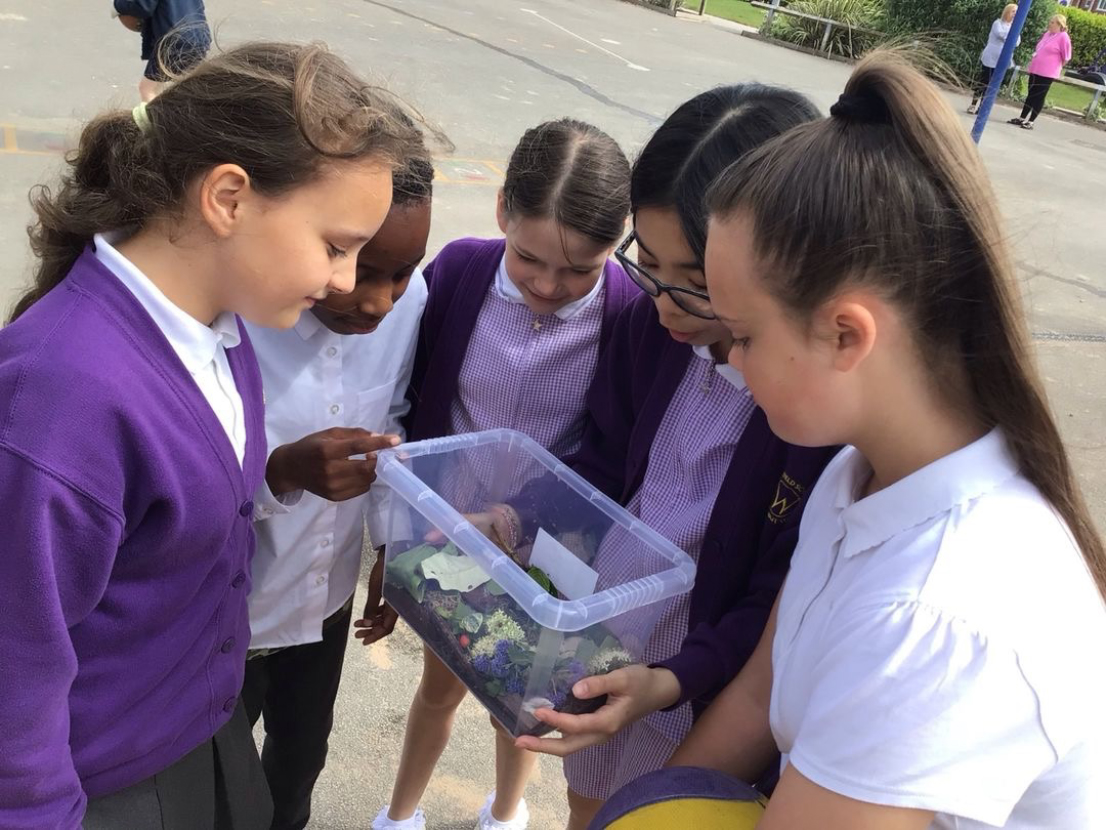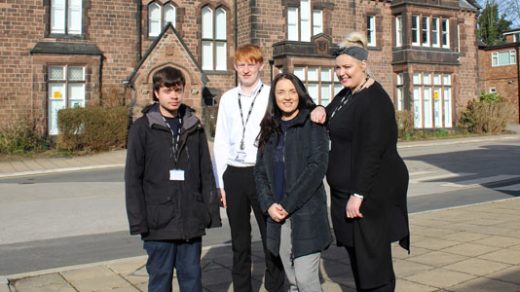Charity awards a further £90,000 to Whitefield Primary for successful transition project

A project aimed at helping children understand and manage their emotions as they move to secondary school has been backed by education charity SHINE.
The new initiative builds on the learnings of an ongoing SHINE project, led by Whitefield Primary School in Everton, which helps early years children to better control their feelings. As reported last month, SHINE has backed an expansion of that project with a follow-up grant that will mean it can be scaled up into other schools.
Now, the charity has granted a further £90,000 to Whitefield to develop a spin-off project for children in Years 6 and 7.
‘Supporting Transition and Developing Emotional Intelligence’ will help children to navigate the stressful move from primary to secondary.
Whitefield leaders are aware that many children have experienced adverse childhood experiences of some sort in their lives, which can have a big impact on them, as their brains are still developing. Other children face the challenges that neurodiversity brings.
While at school, these pupils may have trouble staying calm become easily distracted or disengaged or find it hard to make friends. They may also have low trust in authority and so have lower attendance. These factors can have a significant impact on a child’s ability to learn.
Through the support of teachers, and the use of a structure called the ‘Zones of Regulation’, children at Whitefield learn to better identify emotions such as anger, sorrow or frustration. They come to understand the physical feelings of these emotions and are taught how to handle them more effectively.
The award-winning school has also adapted its curriculum to support this and works with families to develop their understanding and support.
The aim is that children enjoy school more, are more likely to attend lessons, and subsequently achieve better academic outcomes.
Despite the programme’s success in primary school, children have reported that when they move to secondary school, where they don’t have the same support systems, they have struggled.
They have found it difficult to maintain concentration or access learning, and they have found that interactions which are understood in primary have not worked, leading them to detentions and at times to exclusions or suspensions.
The new project aims to minimise this by making sure both primary and secondary schools understand the same methods to help children handle their emotions.
Throughout the three-year project, Whitefield will work with secondary schools to ensure more continuity between the educational stages.
Teachers in primary and secondary schools will be encouraged to speak the same language when talking about emotions. They will be trained to understand and help students with their emotions.
A new emotional literacy curriculum will be developed and delivered throughout Year 6 and Year 7.
Children will be taught to know how to ask for help, and how to express how they are feeling. Older students will also be trained to be able to support younger children.
It is hoped that the project will result in:
- Better attendance and a fall in exclusion rates for children in Years 7 and 8
- An improvement in the well-being of both students and teachers
- Children feeling less anxious about moving to secondary school
- A higher percentage reaching the expected standard in maths and English in Years 7 and 8
Project lead, Marie Beale, explained: “Children in areas of deprivation are shown to have a significantly reduced vocabulary – this is particularly apparent around their understanding of emotions. There are many words that they simply don’t know.
“When they can’t express what they are feeling, they will often respond in other ways.
“If you can start to analyse the root of that anger, it’s more helpful to manage it or to communicate what the issue is.
“What we’re looking at is building sessions about knowing how to ask for help and knowing who to go to and what are the routes for them to do that. What are the sentence stems that help them say ‘I’m finding this difficult’?”
“We teach children the curriculum so explicitly now, including the vocabulary. Children understand words like diminuendo or denominator, but we don’t give them the words to say, ‘I’m struggling with this piece of work because…’ or, ‘At the minute I can’t concentrate because…’.”
The project will initially include seven primary schools and Whitefield’s main feeder school, North Liverpool Academy, followed by other secondaries next year.
Marie said there has been lots of interest from both primary and secondary schools. She hopes the project will make a big difference to vulnerable children moving to secondary school and help them achieve their potential as they progress through school and beyond.
Marie said: “For vulnerable children, the summer between Year 6 and 7 has been described as ‘the summer of no belonging’, because often their school feels like part of their family.
“What we’re trying to do is to improve how these children feel about the transition through their final year at primary school, and then work on that integration to secondary being smoother for them in terms of their emotional well-being.”
The project has attracted interest from academics at Liverpool John Moores University and Manchester University who will produce an academic paper assessing its impact.
SHINE CEO, Fiona Spellman, said: “We know that children and young people from disadvantaged backgrounds, the children that SHINE exists to support, face many barriers to learning that go far beyond the academic: vulnerable students need support with their wellbeing, emotions and vocabulary to be able to succeed at school and far beyond.
“We are so proud of the brilliant work we have been able to do with the team at Whitefield so far, and excited to see this taken into the next phase of education, to support students through the challenges of secondary school and beyond. We are very much looking forward to seeing this work develop and understanding the impact.”




